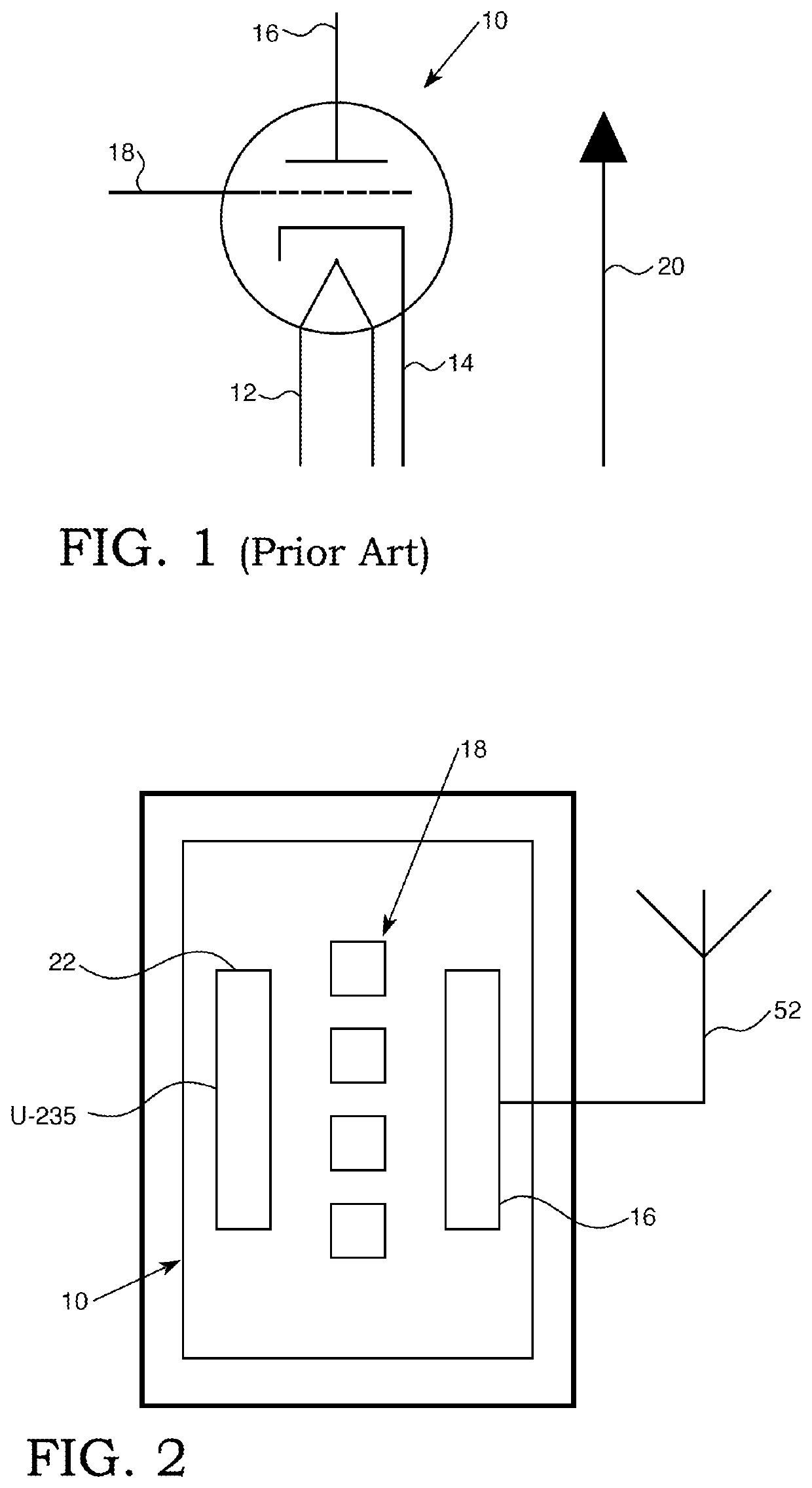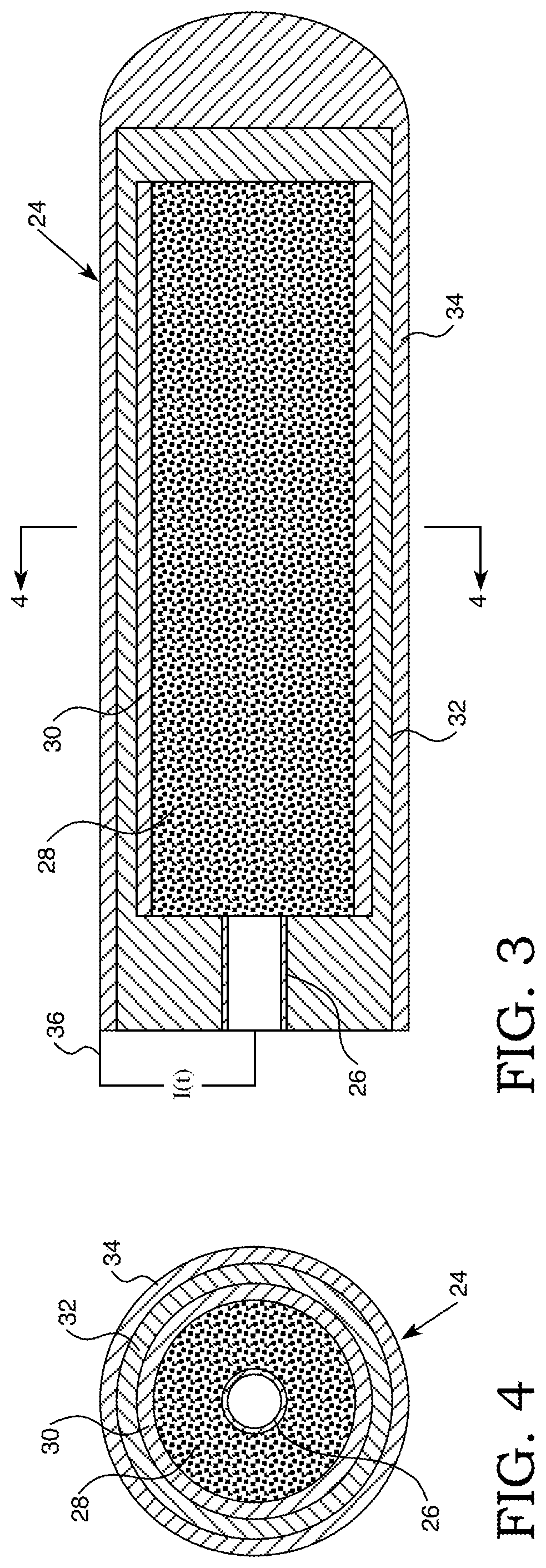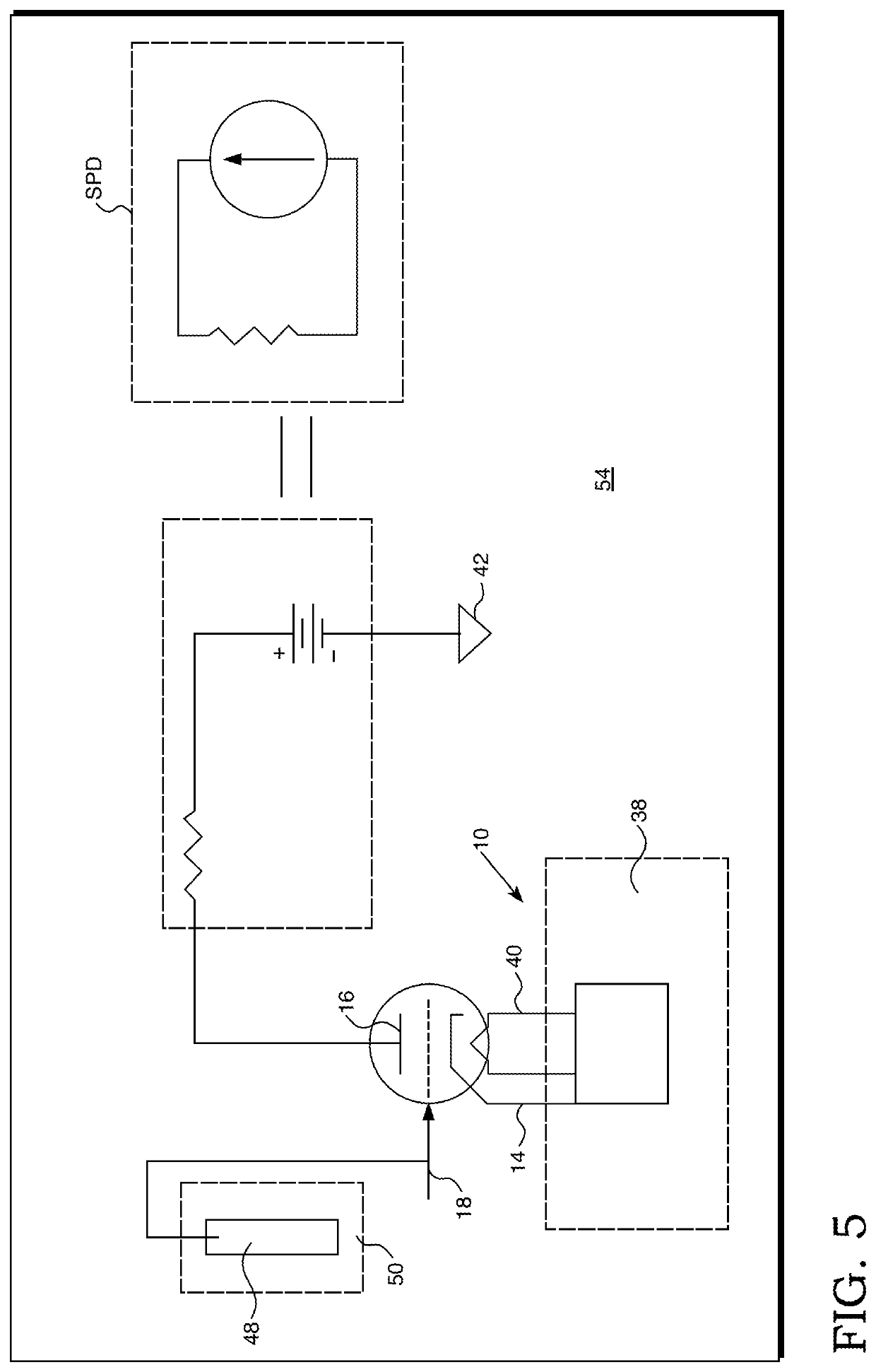Nuclear powered vacuum microelectronic device
a vacuum microelectronic and vacuum technology, applied in nuclear engineering, nuclear reaction control, nuclear elements, etc., can solve the problems that conventional power sources such as chemical batteries, thermoelectric generators, cannot survive the in-core environment of nuclear reactors
- Summary
- Abstract
- Description
- Claims
- Application Information
AI Technical Summary
Benefits of technology
Problems solved by technology
Method used
Image
Examples
Embodiment Construction
[0015]The preferred embodiment of this invention comprises a vacuum micro-electronics (VME) device with a fissionable heater element capable of producing the energy necessary to power the vacuum micro-electronics device directly from the thermal energy produced by fissile material, such as U-235. FIG. 2 shows a high level representation of vacuum micro-electronics device 10 being powered by the U-235 heater / cathode element 22. In FIG. 2, U-235 is coated on the cathode 14. Alternately, the heater / cathode element 22 can either be wrapped around or run through the fissile material, as shown in FIGS. 7 and 5, respectively. The fissile material will heat up as it absorbs neutrons that are leaked from the reactor core. The dimensions of the fissile material are preferably, approximately 0.1 inch in height by 0.260 inch diameter in order to fit into a typical VME. The fissile material is preferably a uranium dioxide (UO2) pellet with low enriched (ideally less than 5 w / o) U-235, however, o...
PUM
 Login to View More
Login to View More Abstract
Description
Claims
Application Information
 Login to View More
Login to View More - R&D
- Intellectual Property
- Life Sciences
- Materials
- Tech Scout
- Unparalleled Data Quality
- Higher Quality Content
- 60% Fewer Hallucinations
Browse by: Latest US Patents, China's latest patents, Technical Efficacy Thesaurus, Application Domain, Technology Topic, Popular Technical Reports.
© 2025 PatSnap. All rights reserved.Legal|Privacy policy|Modern Slavery Act Transparency Statement|Sitemap|About US| Contact US: help@patsnap.com



